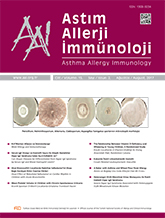


Hyperimmunoglobulinemia D syndrome is a rare, autosomal recessively inherited autoinflammatory disease caused by mutations in the mevalonate kinase gene. The disease is characterized by clinically recurrent episodes of fever in the infantile period. The fever is typically accompanied by abdominal pain, vomiting, diarrhea and cervical lymphadenopathy, and sometimes by skin and joint symptoms. In this case report, a 6-year-old male patient who was presented with a history of attacks of recurrent fever, malaise, aphthous ulcers, cervical lymphadenopathy, macular rash in the lower extremity, severe muscle pain, abdominal pain and hepatosplenomegaly since the age of 12 months is presented. During the attacks, the erythrocyte sedimentation rate, C-reactive protein and fibrinogen levels of the patient were elevated. The serum IgD level was high both during and outside the attack. Mevalonate kinase gene analysis revealed the heterozygote Ser52Asn mutation. In the literature, it is reported that this mutation does not show clinical signs. The patient did not respond to prophylactic colchicine and intravenous immunoglobulin treatment, and also to non-steroidal anti-inflammatory drugs and corticosteroids during the attacks. The patient`s fever attacks decreased with anti-interleukin-1 treatment.